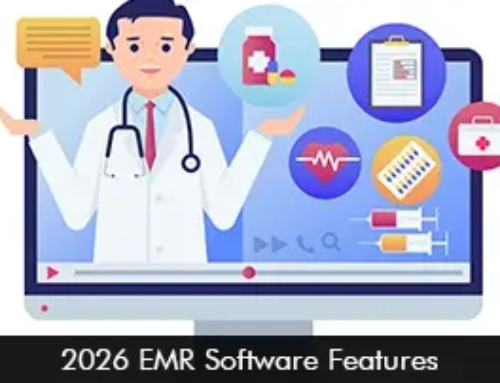EMR software is evolving rapidly. Advances in Artificial Intelligence (AI) and Machine Learning (ML) are transforming healthcare. These technologies can streamline workflows, enhance patient care, and reduce costs. In this blog, we’ll explore the future of EMR software with AI and ML.
The Role of AI in EMR Software
AI is revolutionizing data processing in Electronic Medical Records (EMR) software. Traditional EMR software stores massive amounts of patient data. However, AI can analyze and interpret this data more efficiently. This leads to quicker decision-making and better patient outcomes.
Enhancing Diagnosis and Treatment
One key area AI enhances is diagnostic accuracy. AI-driven algorithms can scan patient records to detect patterns that may indicate potential diseases. For example, in ophthalmology, AI can help detect early signs of glaucoma by analyzing eye images. It can also recommend treatments based on the latest medical research.
Personalized Care with Machine Learning
Machine Learning takes AI one step further. It can personalize treatment plans based on a patient’s unique health profile. ML algorithms learn from each interaction and continuously improve their recommendations. This helps physicians provide more targeted, effective care.
AI-Driven Predictive Analytics
Predictive analytics is another powerful tool in EMR software. AI uses patient data to forecast health outcomes. This helps doctors intervene early in high-risk cases. For instance, AI can predict the likelihood of hospital readmissions, allowing healthcare teams to take preventive measures.
EMR Software Streamlining Administrative Tasks
AI doesn’t just help with patient care; it also simplifies administrative processes. Automated data entry, billing, and scheduling save time for healthcare staff. This means more focus on patient care and less on paperwork.
The Impact of Natural Language Processing (NLP)
Natural Language Processing (NLP) is a game-changer in EMR software. NLP allows EMR systems to understand and process human language. This means doctors can dictate notes, and the software converts them into structured data. It reduces the burden of manual data entry and minimizes errors.
Improving EMR Software Interoperability
EMR systems often struggle with interoperability, which is the ability to share data across different platforms. AI can help bridge this gap. By standardizing data formats, AI makes it easier for different systems to communicate. This improves care coordination across healthcare providers.
Challenges to Overcome
While AI and ML offer many benefits, there are still challenges to address. One major issue is data privacy. With AI analyzing sensitive patient information, ensuring security is essential. Robust cybersecurity measures must be in place to protect patient data.
EMR Software Integration with Existing Systems
Integrating AI into existing EMR systems can be complex. Many healthcare providers use legacy systems that aren’t AI-compatible. Upgrading these systems requires significant investment and training. However, the long-term benefits make it worth the effort.
The Importance of Training Healthcare Staff
AI and ML will change how healthcare professionals work. Training staff to use these tools effectively is crucial. Physicians and nurses must understand how AI makes decisions to ensure trust and transparency in patient care.
EMR Software Regulatory Considerations
As AI and ML become more integrated into EMR software, regulatory bodies will need to update guidelines. These technologies must comply with healthcare regulations, like HIPAA in the U.S. Clear standards will ensure that AI-driven EMR systems are safe and effective.
Future Trends in EMR Software
As AI and ML evolve, the future of EMR software looks promising. Here are some key trends to watch:
AI-Powered Virtual Assistants
Virtual assistants, powered by AI, will help doctors manage daily tasks. They can schedule appointments, remind patients about medications, and even assist in diagnosis. This will reduce the administrative load on healthcare providers.
AI for Population Health Management
AI can also help manage the health of entire populations. By analyzing data on a large scale, AI identifies trends and health risks within communities. This enables public health interventions that can prevent widespread disease.
Real-Time Decision Support
In the future, AI will provide real-time decision support during patient visits. For example, the system can instantly offer treatment recommendations based on the patient’s symptoms and history. This ensures faster, more informed decision-making.
EMR Software Blockchain Integration for Security
Blockchain technology may also integrate with EMR systems. Blockchain provides a secure, transparent way to store and share data. This will enhance security and prevent unauthorized access to sensitive information.
The future of EMR software is closely tied to AI and ML advancements. These technologies will continue to transform healthcare, improving patient outcomes and streamlining operations. While challenges remain, the potential benefits are enormous.
AI and Machine Learning are the future of EMR software. They enhance diagnosis, treatment, and administrative processes, creating a more efficient healthcare system. As these technologies continue to evolve, healthcare providers must stay informed and adapt. The result will be better care for patients and a more effective, streamlined system for providers.
AI and ML are not just buzzwords; they are tools that will shape the future of EMR software. The integration of these technologies marks a new era in healthcare.








